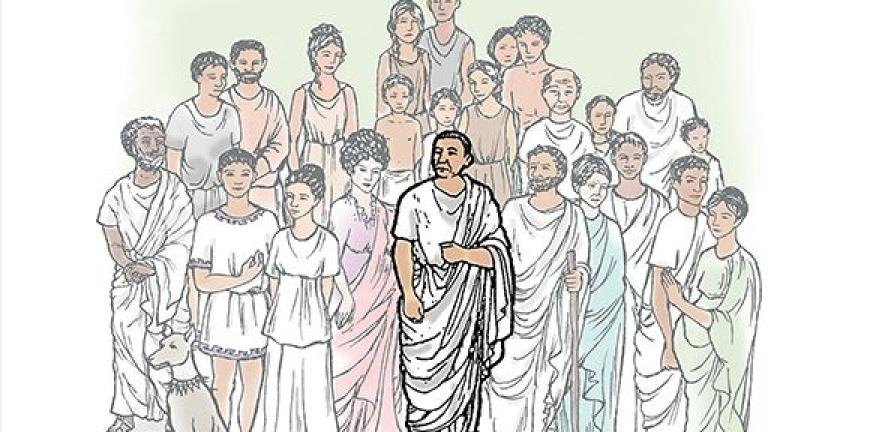UK school Latin course overhauled to reflect diversity of Roman world
New edition of Cambridge Latin Course will include more female characters and better reflect the Roman empire’s ethnic diversity, reports Aisha Rimi


A Latin course used for decades across UK schools is set to have its biggest overhaul in 50 years, as it aims to better reflect the roles of women, ethnic minorities and enslaved people in the Roman world.
The latest edition of the Cambridge Latin Course (CLC) will be published later this month after teachers, academics and students raised concerns about the representation of Rome’s multicultural reality in previous versions.
Girls were particularly frustrated with the lack of female characters and development in their stories.
There was also concern about the depiction of the Roman world as predominantly white, and the misrepresentation of enslaved people and slavery.
The course has gained cult status over the years and has been a key component of Latin learning in British schools since the 1970s.
Book One tells the adventures of a Pompeiian family featuring Caecilius, his wife, Metella, son, Quintus, and cook, Grumio. The characters have even inspired fan fiction, artistic tributes and even a Doctor Who cameo.
Caroline Bristow, director of the Cambridge School Classics Project, said: “The aim has always been to introduce students to the complexity of the Roman world and get them to think critically about it while learning Latin.
“That prepares them to engage more thoroughly with authentic classical sources. The feedback we got told us we weren’t doing enough in that regard.”
Ms Bristow added: “We wanted to provide students with a more rounded picture of people and events, while ensure the stories remain historically grounded. We’ve done that by drawing from that wider range of sources and events.”
The newly-published fifth edition will include original characters, but women will have greater prominence and readers will learn more about the lives of enslaved people.
In earlier editions, enslaved people were depicted as “happy”, “hard-working” or “lazy”, but now the course will depict slavery through their eyes, focussing on their difficult lives.
Students and teachers have reviewed the new edition, which has been met with positive response.
Last year, the government announced a £4m programme that would give more students the opportunity to learn Latin.
The Latin Excellence Programme aims to level up opportunities for state secondary school pupils. A recent British Council survey showed that Latin is only taught at key stage 3 in 2.7 per cent of state schools compared to 49 per cent of independent schools.






Join our commenting forum
Join thought-provoking conversations, follow other Independent readers and see their replies
Comments